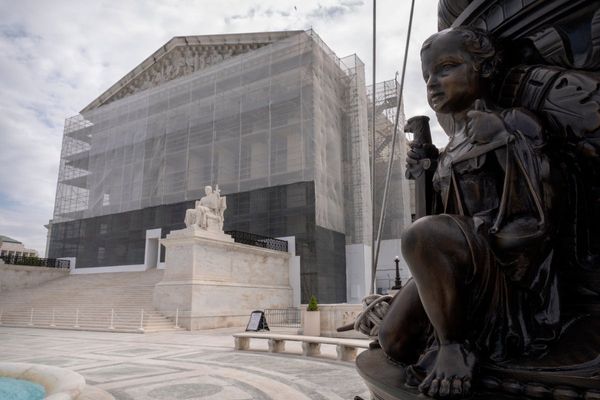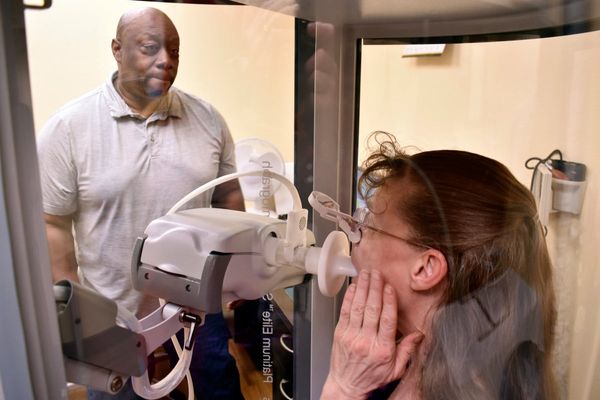
Beijing (AFP) - China's 20th Congress wraps up this weekend with a lot more at stake than simply President Xi Jinping's bid to secure a historic third term as Communist Party chief.
The composition of the party's elite bodies, as well as key phrases, will be scrutinised to determine the full extent of Xi's campaign to become China's most powerful leader since Mao Zedong.
Here are some of the key things that analysts will be looking into at the end of the five-yearly event in Beijing:
All change
One of the major tasks of this week's Congress is appointing the Communist Party's Central Committee, made up of around 200 delegates, of which the 25-member Politburo forms the core.
But real power in China rests in the hands of the Politburo's smaller Standing Committee -- which currently has seven members -- that will also be chosen this week.
Hong Kong's South China Morning Post predicted that "as many as four top positions on the Politburo Standing Committee could change hands and nearly half the Central Committee is expected to be replaced".
"A larger turnover would mean a benefit for Xi," Nis Grunberg, of the Mercator Institute for Chinese Studies (Merics) in Berlin, said, explaining that it would allow China's leader to "promote more of his supporters from the Politburo to the Standing Committee".
New boss, same as the old?
On Saturday, the party is expected to unveil the new Central Committee, while the following day -- at its first plenum -- the composition of the new Politburo and its Standing Committee will be made public.
The members of that top body will be announced in order of importance, the first being the general secretary -- in a process expected to confirm that Xi has secured a third term.
Next -- either in position two or three -- will be the new premier, replacing the retiring Li Keqiang, who analysts say has not fully endorsed some of Xi's signature policies, including zero-Covid.
Touted as possible successors are the more liberal-minded Wang Yang and Hu Chunhua, a protege of former president Hu Jintao and once cited as a potential leader of China.
But there are few expectations the appointment of either will signify any factional challenge to Xi, who has diminished the role of the premier during his 10 years in power.
"The composition of the new Politburo and its Standing Committee will provide some of the best evidence available about the political balance of power in Beijing," said Neil Thomas, senior China analyst at Eurasia Group.
However, he added, "Xi's incredible consolidation of power means that elite promotions are less of a balancing act between rival factions and more of a loyalty contest within Xi's dominant faction".
Tipped to join the Standing Committee are four close allies: Li Xi, Guangdong province party chief; Ding Xuexiang, Xi's chief of staff; and Chen Min'er, party leader in the megacity of Chongqing.
Also possibly primed for promotion to the upper echelons is Li Qiang, party chief in Shanghai and architect of the city's gruelling months-long Covid lockdown this year.He is another Xi ally.
Xi's longtime advisor -- and current Politburo Standing Committee number five -- Wang Huning is also tipped for promotion, with the South China Morning Post reporting that he could lead Beijing's National People's Congress.
- New mandate...and new title?-
On the surface, Xi appears guaranteed to obtain a third term as general secretary at the head of the party -- and as a result be confirmed as China's president at the next National People's Congress in March.
But there could be other ways to show the near-total dominance of Xi over the party, which over recent decades had more avenues for internal debates and even dissent.
Analysts and media have speculated that Xi may wish to change his title to "People’s Leader” or even "Party Chairman", the same held by Mao -- further cementing his place in China's history next to the so-called Great Helmsman.
Another modification to the party charter may also be in store.
In 2017 it incorporated a reference to "Xi Jinping Thought on Socialism with Chinese Characteristics for a New Era", a moniker that was added to the country's constitution the next year.
But this time, analysts say, the party may shorten the formulation to "Xi Jinping Thought" -- once again elevating his stature to that of Mao.
"As silly as it sounds, such a change would signal broad support for Xi within the Party elite, elevating his status and ideology to the same level as Mao Zedong," said consultancy Trivium China.







